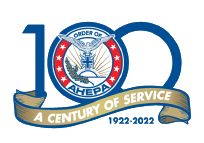Nicholas Pantoleon Petrokokinos
Nicholas Pantoleon Petrokokinos (1808-1885) the son of Pantoleon and Catharine Petrokokinos, was born on the island of Chios, Greece on March 16, 1808. He attended public school in Chios as well as attended the lectures of Professor Bambas at the Collegiate Institute of Chios in 1821 and 1822.
Nicholas along with most of his family lived in Chios until the massacre of 1822 when the "Turks made that beautiful island a desolation." Nicholas' father was in Malta prior to the massacre. Nicholas as well as his mother and younger brother escaped Chios – on the same small vessel with the Ralli and Galatti families – after having witenessed from a distance the devastation of Chios, and after having concealed themselves for eleven days in uninhabited districts. Here they suffered from hunger, exposure, and agonizing terror; but were mercifully delivered, though a vast majority of their countrymen fell a sacrifice to the unrelenting barbarity of the Turks.
From Chios they crossed the Aegean Sea and landed near Monemvasia on the southern peninsula of the Peloponnese. Despite difficulties, they too succeeded in reaching Malta and re-uniting with Pantoleon Petrokokinos. In Malta, Nicholas had the good fortune to make the acquaintance of the Reverend Daniel Temple the American missionary who secured his passage to America.
Nicholas was 16 years old when he was brought to the United States and arrived in Boston on May 17, 1824 on board the brig Cypress, commanded by Captain Chaddock along with Alexander Paspatis and brothers Constantine and Pandias Rallis. He was also among the 12 Greek youths brought to America between 1823 - 1831 by the American Board of Commissioners for Foreign Missions.
After quickly completing his preparatory studies at Monson Academy, Nicholas enrolled at Amherst College in 1825. Amherst's records indicate that Nicholas was the first international student to attend the college. Nicholas studied theology and assisted in the modern Greek department at Amherst for three years and returned to Malta in 1828. Although a member of Amherst's Class of 1829, the degree of B.A. was not conferred upon him until 1832; subsequently, the degree of M.A. was conferred upon him in 1833.
When Nicholas returned to Malta in 1828, he was employed at the printing press. From 1829 to 1837 Nicholas worked for the American Board of Commissioners for Foreign Missions (ABCFM) primarily translating and editing books in Greek. On October 31, 1833, he married Catharine Thalasseno the daughter of Stamatius Thalasseno. In 1837, they moved to Smyrna where Nicholas continued working for the ABCFM translating and editing books (until 1842). Nicholas also wrote various books about American missionaries, became a journalist and the editor of the greek periodical "The Magazine of Useful Knowledge," and was an associate of the American Theological Institute.
In 1844 and twenty-two years later, Nicholas finally returned to his native island of Chios where he would live for the rest of his life. He continued as the editor of the greek periodical "The Magazine of Useful Knowledge" (until 1865). Nicholas also was occupied with the care of his property and with the civil affairs of the community as well as the trustee of all the Greek schools on the island of Chios. In 1867, he was appointed United States Consul on the island of Chios (from 1867 to 1880). Nicholas Petrokokinos was also a well-known liaison officer between England and Greece.
Nicholas' first wife Catharine died on the island of Chios on August 19, 1950. They had nine children. On December 8, 1855, he married Charicleia Macheriadi of Chios. Together, they had six children. In total, Nicholas fathered 15 children – six sons and nine daughters. Nicholas Pantoleon Petrokokinos died on February 14, 1885 at the age of 76 on the island of Chios.
Also known as Nicholas / Nicolaos Petrocokinos, Nicholas / Nicolaos Petrokokkinos, Nicholas / Nicolaos Petrocokinos, Nicholas / Nicolaos Petrocokino, Nicholas Pantoleon Petrocokino, Nicholas Petrocokkinos
Nicholas Petrokokinos, a Chian indebted to America for his education, was the editor of a periodical at Smyrna, directed by the American Missionary Rev. Temple. This literary and scientific work attended with engravings of scenery, distinguished individuals, antiquities, and other useful objects of curiosity, was a Greek production under American auspices, highly creditable to both nations. It circulated freely throughout the east and was perused by the wandering Greek, in the depths of Persia and Russia.
Source: Castanis, Christophorus Plato. pp. 224 - 225.
Bibliography
"Biographical Record of the Alumni of Amherst College." Amherst College.
Booras, Harris John. "Hellenic Independence and America's Contribution to the Cause." Rutland, VT: The Tuttle company, 1934.
"Report of the American Board of Commissioners for Foreign Missions." American Board of Commissioners for Foreign Missions.
Castanis, Christophorus Plato. "The Greek Exile." Philadelphia: Lippincott, Grambo, & Co., 1851.
Hatzidimitriou, Constantine G. "Founded on Freedom and Virtue." New York: Caratzas, 2002.
Blastos, Alexandros M. "A History of the Island of Chios, A.D. 70 - 1822." London: J. Davy and Sons, 1913.
